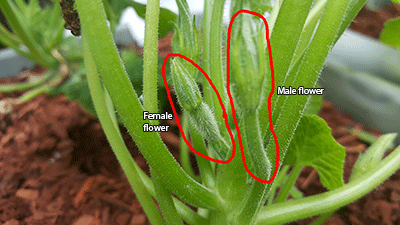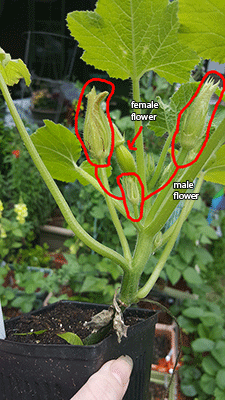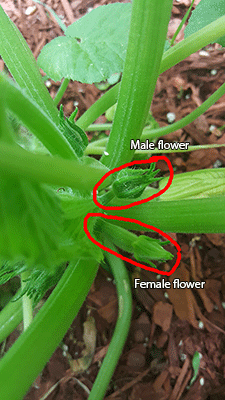A lot of people are used to plants where the fruit doesn't grow until a flower has been pollinated. So when fruit shows up on a squash, pumpkin, or gourd plant, they assume it means the flower has been pollinated. When they don't see any fruit, they try pollinating the flowers themselves. The problem is that these kinds of plants don't work that way - they have male and female flowers. The male flowers go from the stem to flower, while female flowers have a fruit at the bottom.
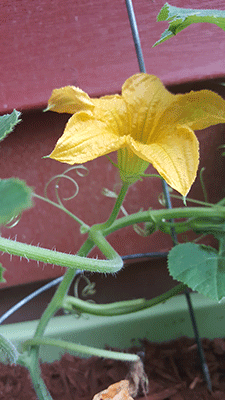
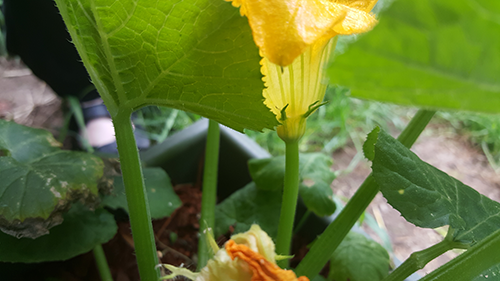
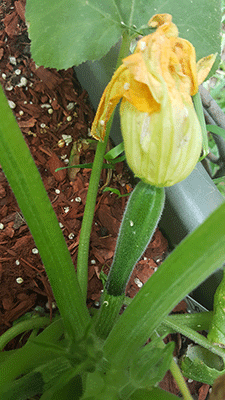
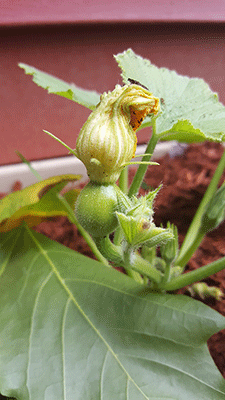
The fruit at the bottom of the stem of the female flower will continue to grow along with the flower. This does not necessarily mean that the flower has been fertilized. And if it doesn't end up fertilized, it will start to shrivel up and rot at some point.
Bees and other pollinators are supposed to do the job, but as we all know, we're short on them and they can't always get to your flowers. So what can you do about it? You can pollinate themselves.
First you have to wait until you have flowers of both kinds. Keep an eye out, as the pollen in the male flowers is only viable for so long.
When you finally have flowers of both, head outside before it gets too hot during the day. The flowers will be nice and open early in the day, but close up once it starts getting hot. Take some q-tips with you, as that is how you're going to do the pollination.
You'll rub the qtip on the inside of the male flower. You should see yellow pollen on the qtip. That is why I like using qtips - they are white and make it easy to see the pollen. Once you have a good amount on your qtip, you can go and rub that on the inside of the female flower.
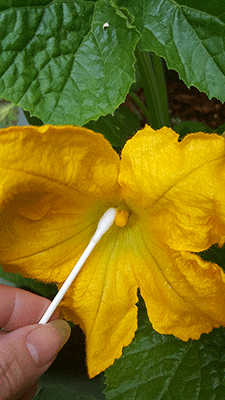
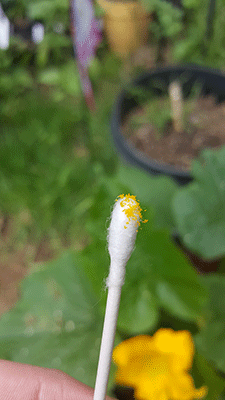
You may have to be very careful. Male flowers fall off really easy and you might knock one off. You may also need to open the female flower if it has begun to shrivel or has already closed for the day.
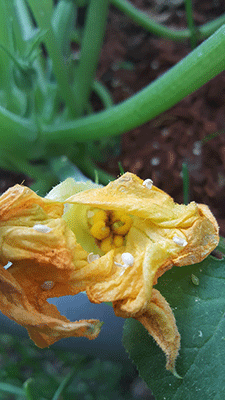
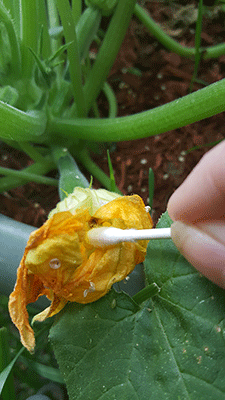
If you're going to work on multiple plants of different types, put the used qtips in your pocket so that you don't accidentally cross-pollinate your plants.
Following this method should help increase the pollination rates of your plants.
- Log in to post comments


